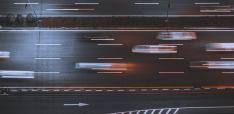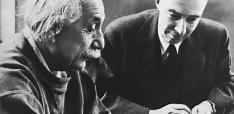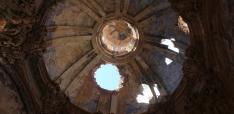Learning About Syria from Percy Bysshe Shelley
For those who have not recently read Shelley’s “The Revolt of Islam,” a poem written in 1817, I recommend it. I first read the poem, composed in a dozen cantos, as a teenager. I recently re-read it, at a colleague’s urging, and it’s a fascinating poem in the present context.
First, the poem is not about Islam any more than it is about any other religion. Nor is it about the political economy of revolution any more than Le Sopha by Claude Prosper Jolyot de Crébillon is about the mechanical aspects of revolution. The poem is, however, a courageous attempt to deal with many of the implicit philosophical questions that trouble any mildly introspective person when people attempt to assert their rights through revolution. In fact, “The Revolt of Islam” is a fascinating summary of many of the issues Harvard scholar Harold Berman wrestles with in his two-volume Law and Revolution treatise (one of my favourite texts on the subject, many thanks to my friend Colin Wilder for introducing me to it at the University of Chicago years ago).
These are issues like, “What does self-defence mean in a societal context?” and “Can Aristotelian oughtness ever fully mature into some defensible argument for violence beyond that of self-defence (and, if so, how does one proceed in prosecuting such an argument without running afoul of the very tenets one’s argument depends upon in the first instance)?” Of course, Shelley dodges these bullets artfully by not speaking of revolution explicitly, but rather as a maturation of protagonists Laon and Cythna as they both witness and participate in a revolution that is not of their own devising.
Shelley embraces and exploits several concepts in the poem. First, that it is not relevant (or even mentioned) who starts the revolution – what is relevant is the magnitude of speedy participation; early shows of force are critical to the revolution’s success, for there will never be consensus. Second, that even without consensus (portrayed in the poem is a state in which only a child remains loyal to the despot when he is finally confronted by his people), peaceful revolution is both possible and desirable. Third, that the concepts and doctrines of peaceful transition need not be – and logically should not be presumed to be – symmetrical, simply because those deposing prefer peace does not mean he who is being deposed will not resort to violence.
All three of these concepts alluded to by Shelley are relevant to understanding the situation in Syria.
We do not know, and in many respects it is unimportant, precisely where the genesis of the unrest in Syria lies. We do not know how many people support the regime, or support regime change, but so long as there are some of one and some of the other, minding the precise count is not an important exercise. We do know that while many may have preferred a peaceful, gradual transition away from the current regime’s control of the country, this does not mean the regime will cooperate or reply in kind.
There has not been unrest of the current scale – or of the scale Shelley imagines – in Damascus since the summer of 1148 (during which Christians attempted to put Damascus to siege, and held it under an enveloped garrison, with intermittent incursions into the city itself - notably by a brigade from Alsace, the Yellow Brigade commanded by Thierry of Flanders, that would return to Europe and be absorbed into Swiss forces, never to be used in an offensive action again). Since the Christians were repelled in 1148, Damascus has been a place of relative peace.
In Shelley’s time, the question of peace through force was relevant and hotly debated, as was the assertion of rights through violence. Classical texts were often disregarded or criticised (including by Shelley himself while a student at University College, Oxford and later in life in his papers) and thought to be less relevant in the modern context. In many ways, many European authors saw the then-recent French Revolution in the light that many Americans see the “War on Terror” – that, for reasons not well-explained, prior assumptions about norms, human behaviour, and political structures should be re-examined in a fundamental way. This is a type of recency bias in political history: that recent events are thought to be more distinct or distinguishable from prior events, even if they are empirically not highly unusual; there is a temptation to brand recent events as “unprecedented” even when the precedent for an event is both extant and obvious.
Because history is customarily examined in a serial manner that invites these kinds of bias effects, the non-history of conflict in the poem is, too, important. Shelley sets the story of revolution in a place without history. Unlike Greek epic poetry, where Homer or Hesiod might spend pages introducing the reader to context and history of the setting, Shelley plunges the reader into the naïve existence of his characters only to shatter it with the tyranny of the fictional autocracy. This suddenness – the poem, though of manageable length, features at least five major transitions in mood and pace – underscores the unpredictability and urgency of living in revolutionary conditions. The lack of history provided suggests that anything can happen; surely this place has a past, but it is not relevant in the new future being cast by its revolutionary inhabitants.
We learn from Shelley’s portrayal that it is the uncertainty and crisis of the present, rather than the hope for the future, that drives people during revolution. Whether it is the cowardly leader to be deposed hiding with the few loyal to him (here, Bashar al-Assad) or the leaders of the revolution, it is the desperation of the moment that drives people. And perhaps this is what makes the concept of architecting a master plan for resolving Syria’s internal struggle so fanciful. When life and death are at stake, and any currency of colloquy that might be used for negotiation has been squandered, there is little left to contemplate. Perhaps Shelley’s work’s greatest victory is this: that we see that the tragedy of revolution is not in the persistence of violence among the citizenry, but the persistent frightened loneliness among the individuals, peasants and tyrants included.


